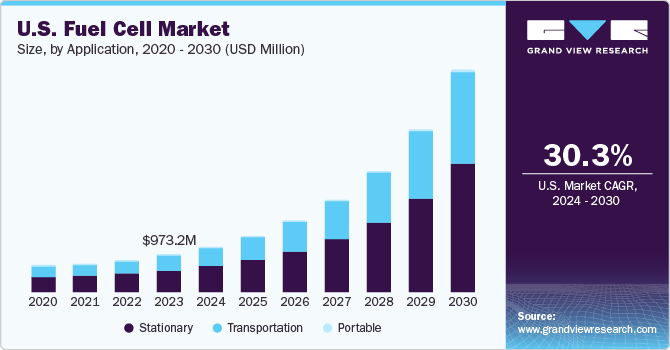
WHAT IS AFUEL CELL?
A fuel cell is an electrochemical energy conversion device that was invented in 1839 by William Grove to produce electricity by combining hydrogen and oxygen into water. Like batteries, fuel cells convert potential chemical energy into electrical energy and generate heat as a by-product. While chemical energy is stored inside batteries, fuel cells can continuously generate electricity as long as they are supplied with fuel (hydrogen) and an oxygen supply.

How Do Hydrogen Fuel CellsWork?
Watch this video to learn how hydrogen fuel cells produce clean, reliable energy. Fuel cells enable hydrogen and oxygen to react in a chemical process that produces electricity and heat, with pure water as the only by-product. Ruled by the laws of science, the process is ultra-reliable.
HYDROGENFUEL
Hydrogen as a fuel is a great alternative source of clean and sustainable energy. The lightest and most abundant element in the universe, hydrogen is considered to be the most environmentally-friendly fuel. Nearly 65 million metric tons of hydrogen are produced every year worldwide using a variety of methods, including steam reformation of natural gas, the fermentation of biogas and electrolysis using solar power.
See you soon! Hit up DudePerfect.com/Tour to get PRE SALE INFO! Dude perfect tour dates 2020. Member Coby Cotton also described the tour as 'After incredibly positive feedback from the fans who completely sold out our first ever tour, we’re back this summer better than ever in even larger arenas.
ADVERTISEMENTS:Every fuel cell also has an electrolyte, which carries electrically charged particles from one electrode to the other, and a catalyst, which speeds the reactions at the electrodes. Hydrogen is the basic fuel, but fuel cells also require oxygen. One great appeal of fuel cells is that they generate electricity with very little pollution—much of the hydrogen and oxygen used in generating electricity ultimately combine to form a harmless by-product, namely water.Hydrogen does not occur free in nature; it can be made by “re-forming” natural gas or another fossil fuel, or by using electricity to split (“electrolyze”) water into its components of oxygen and hydrogen. In this sense, hydrogen is like electricity: the energy to generate it can be obtained from sources ranging from the burning of high-sulfur coal to pollution- free photovoltaic cells (solar cells). Most abundant element. ADVERTISEMENTS:It will greatly reduce the import of highly expensive oil demands of our country.
Global producer of hydrogen PEM fuel cell and integrated products up to 5000W, with a strong focus on commercialization across several industries including. Mar 21, 2020 Fuel cell, any of a class of devices that convert the chemical energy of a fuel directly into electricity by electrochemical reactions. A fuel cell resembles a battery in many respects, but it can supply electrical energy over a much longer period of time.
Hydrogen is currently very expensive, not because it is rare (it’s the most common element in the universe!) but because it’s difficult to generate, handle, and store, requiring bulky and heavy tanks like those for compressed natural gas (CNG) or complex insulating bottles if stored as a cryogenic (super-cold) liquid like liquefied natural gas (LNG).2. It can also be stored at moderate temperatures and pressures in a tank containing a metal-hydride absorber or carbon absorber, though these are currently very expensive.